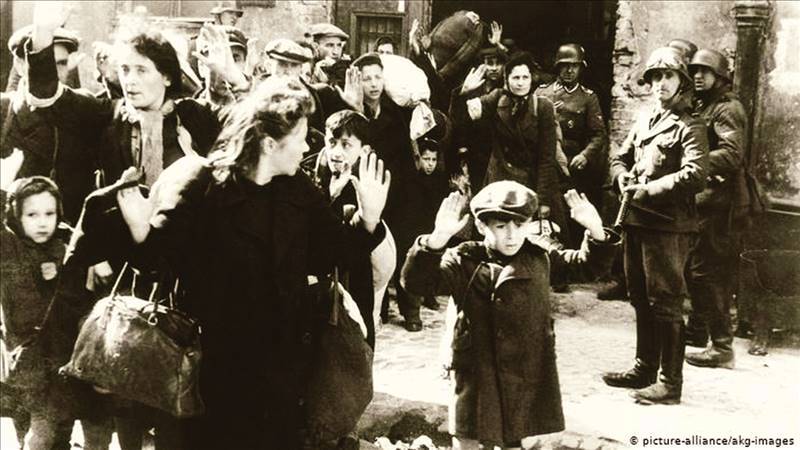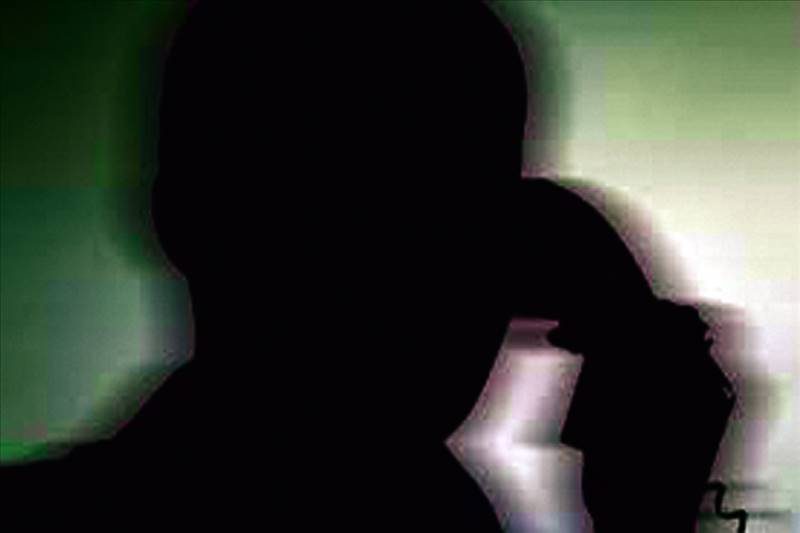
When I was in Lahore last winter, I found that I needed to hire short-term help, mostly because I kept burning my own daal into a solid mass of despair. My parents employ a set of perpetually feuding cousins at their house, and suggested that I ask them if they could recommend someone.
Personally I’ve always been wary of too many relatives working together. So, given that my own extended family has only ever had a passing acquaintance with sanity, I thought better of diving into a gene pool of already warring clans for my new hire, lest their family squabbles becomes my daily bane.
But the daals got much worse, and eventually I asked their cook if he knew anyone. He promptly sent over a distant nephew named Omar, who happened to be looking for work at the time.
Omar was a smart young man, quickly adaptable and consistently reticent, all qualities that meant we got on well for my remaining six months there. Shortly after the pandemic hit, though, he left in a mysterious, spontaneous puff of drama – all the assurances of his family members now as solid as ash – and I thought little of it afterwards. The other week, though, I was told by my spies in the house that a new drama was being debuted, one which opened with news of Omar in a jail cell.
“Jail,” I asked. “For what?”
He had left because of family pressure at his home, apparently, but eventually found his way to a new house (also populated by a number of his numerous relatives). One day the family that employed them received an anonymous phone call. Pay x lakhs of rupees, the voice threatened, or we will kill you. The family were obviously terrified but there first reaction was to flee rather than find the blackmailers, which I found strange – until I was told they were an Ahmedi family. Their fear now sadly made complete sense. Given the institutionalized hatred and bigotry rampant in our crumbling social toxic dump, of course the family felt too scared to call the police, or any of the institutions of their country that have so publicly sworn – again and again – to remain their enemy for no sane reason. The discrimination is so endemic is on all our passports FFS.
That was exactly what the blackmailers wanted them to feel: Powerless, afraid, vulnerably alone. Still, someone prevailed on them to at least trace the number and eventually the trail led back to Omar’s sister phone. No one suspect her because it was Omar who had used her ID to get a phone, one he now claimed had been stolen for him years before.
His relatives at my parents’ home suspect that he was probably influenced into the plan by the opportunistic hatred of some of his crueler friends. It had to have been a group of people obviously, how else could one person threaten a whole house? “He’s fallen in with a bad crowd” is the traditional way people avoid placing any responsibility on their own loved ones.

After hearing the story I felt such a pervasive, helpless sense of sadness. I don’t claim to be a Cybil, but from my experience with Omar he didn’t appear to be a bigot, zealot or a thief. But he may well have been all three. We never really know another person. It took me a while to figure out that it wasn’t just him that was making me sad.
What’s sad is the fear that the family felt. What’s sad is that despite being law-abiding citizens, all it took was a threatening phonecall from a pipsqueak with acne to force them into feeling they had to abandon their whole lives – overnight – just to live. I am ashamed of our country and its people, that have not only allowed but actively encouraged these moronic bigotries to the point they are now pervasive. I confess: the fact that his family is in close proximity to mine kept me up at night. We are Shia Muslims, the next of the list of so-called enemies, and all it really takes for one evil spawn to weaponize that fact – for money or for their sense of morality, it essentially doesn’t matter – for a situation to escalate quickly into perpetual darkness. The brittle protection of class does little in cases like this, in countries like ours, no more than it helped the wealthy Jews in Germany or Poland in the 1930s.
When I first moved into my home, my then caretaker came to me to say that the guards at the surrounding houses had already begun to ask if I was Shia. He advised I hide this fact. That was a decade ago. I dismissed it as nothing more than curiosity. But the truth is I’ve never really let a single neighbor into my home since then. I didn’t want them to know the layout.
Bigotry is a way for the powerless to feel better about themselves. We may be nothing, they think, but at least we’re better than them.
We are a country of bigots managed by institutions of fear. I know this. You know this. Why is it, then, still so painful to be reminded of it?
Write to the kantawala@gmail.com
Personally I’ve always been wary of too many relatives working together. So, given that my own extended family has only ever had a passing acquaintance with sanity, I thought better of diving into a gene pool of already warring clans for my new hire, lest their family squabbles becomes my daily bane.
But the daals got much worse, and eventually I asked their cook if he knew anyone. He promptly sent over a distant nephew named Omar, who happened to be looking for work at the time.
Omar was a smart young man, quickly adaptable and consistently reticent, all qualities that meant we got on well for my remaining six months there. Shortly after the pandemic hit, though, he left in a mysterious, spontaneous puff of drama – all the assurances of his family members now as solid as ash – and I thought little of it afterwards. The other week, though, I was told by my spies in the house that a new drama was being debuted, one which opened with news of Omar in a jail cell.
“Jail,” I asked. “For what?”
He had left because of family pressure at his home, apparently, but eventually found his way to a new house (also populated by a number of his numerous relatives). One day the family that employed them received an anonymous phone call. Pay x lakhs of rupees, the voice threatened, or we will kill you. The family were obviously terrified but there first reaction was to flee rather than find the blackmailers, which I found strange – until I was told they were an Ahmedi family. Their fear now sadly made complete sense. Given the institutionalized hatred and bigotry rampant in our crumbling social toxic dump, of course the family felt too scared to call the police, or any of the institutions of their country that have so publicly sworn – again and again – to remain their enemy for no sane reason. The discrimination is so endemic is on all our passports FFS.
What’s sad is that despite being law-abiding citizens, all it took was a threatening phonecall from a pipsqueak with acne to force them into feeling they had to abandon their whole lives – overnight – just to live
That was exactly what the blackmailers wanted them to feel: Powerless, afraid, vulnerably alone. Still, someone prevailed on them to at least trace the number and eventually the trail led back to Omar’s sister phone. No one suspect her because it was Omar who had used her ID to get a phone, one he now claimed had been stolen for him years before.
His relatives at my parents’ home suspect that he was probably influenced into the plan by the opportunistic hatred of some of his crueler friends. It had to have been a group of people obviously, how else could one person threaten a whole house? “He’s fallen in with a bad crowd” is the traditional way people avoid placing any responsibility on their own loved ones.

After hearing the story I felt such a pervasive, helpless sense of sadness. I don’t claim to be a Cybil, but from my experience with Omar he didn’t appear to be a bigot, zealot or a thief. But he may well have been all three. We never really know another person. It took me a while to figure out that it wasn’t just him that was making me sad.
What’s sad is the fear that the family felt. What’s sad is that despite being law-abiding citizens, all it took was a threatening phonecall from a pipsqueak with acne to force them into feeling they had to abandon their whole lives – overnight – just to live. I am ashamed of our country and its people, that have not only allowed but actively encouraged these moronic bigotries to the point they are now pervasive. I confess: the fact that his family is in close proximity to mine kept me up at night. We are Shia Muslims, the next of the list of so-called enemies, and all it really takes for one evil spawn to weaponize that fact – for money or for their sense of morality, it essentially doesn’t matter – for a situation to escalate quickly into perpetual darkness. The brittle protection of class does little in cases like this, in countries like ours, no more than it helped the wealthy Jews in Germany or Poland in the 1930s.
When I first moved into my home, my then caretaker came to me to say that the guards at the surrounding houses had already begun to ask if I was Shia. He advised I hide this fact. That was a decade ago. I dismissed it as nothing more than curiosity. But the truth is I’ve never really let a single neighbor into my home since then. I didn’t want them to know the layout.
Bigotry is a way for the powerless to feel better about themselves. We may be nothing, they think, but at least we’re better than them.
We are a country of bigots managed by institutions of fear. I know this. You know this. Why is it, then, still so painful to be reminded of it?
Write to the kantawala@gmail.com

